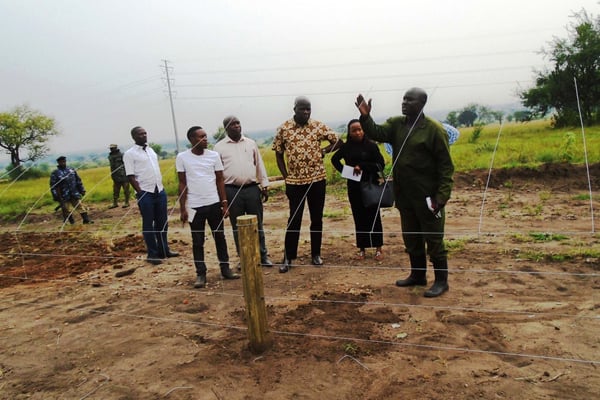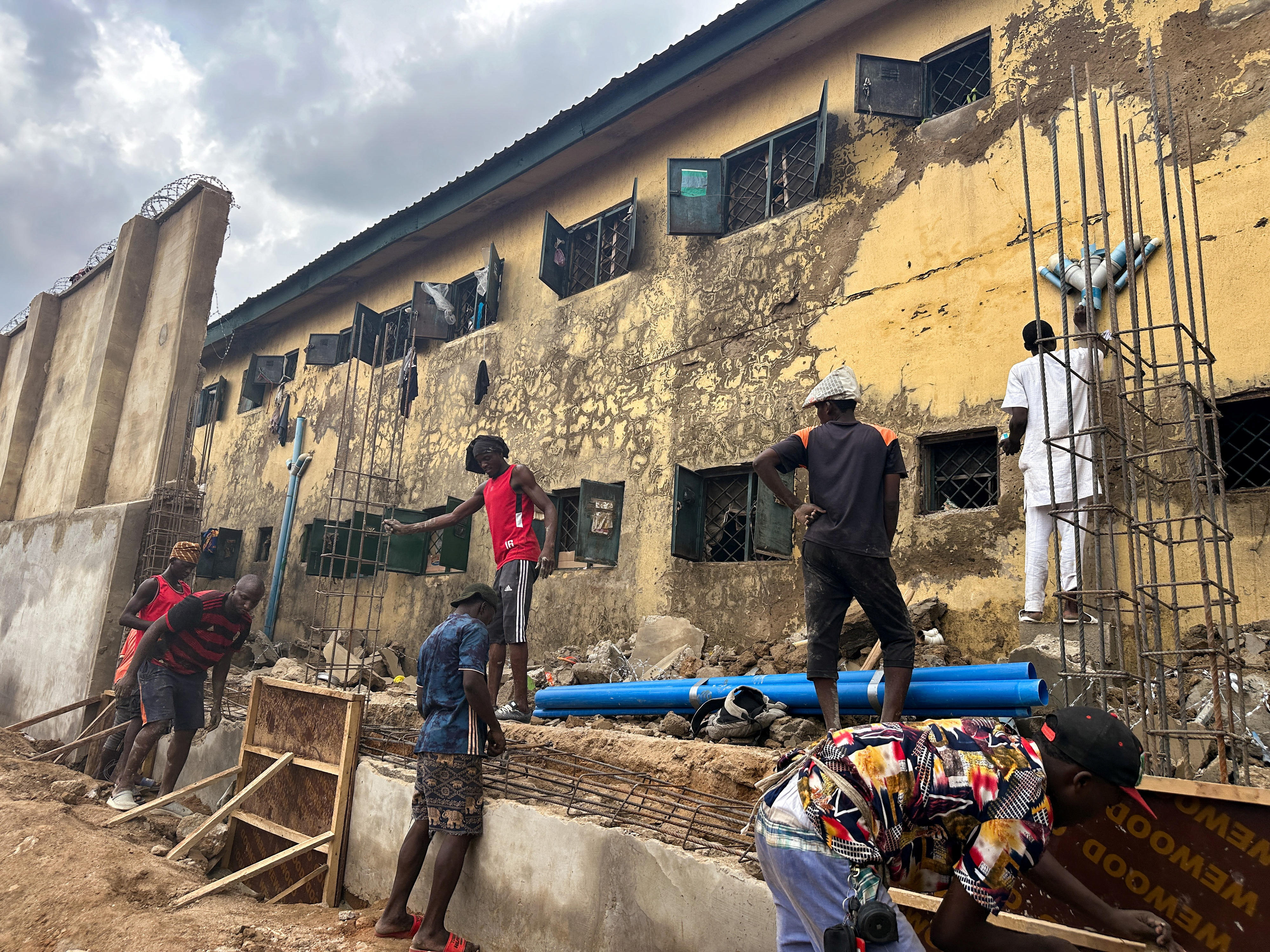Stray animals wreak havoc in Kasese

Kasese RDC Lt Joe Walusimbi (3rd right) with UWA officials inspect the electric fence around Queen Elizabeth National Park in 2019. PHOTO/ENID NINSIIMA
What you need to know:
President Museveni in 2019 assented to the Uganda Wildlife Act but it has not been implemented. Among others, the Act seeks to provide compensation for loss of life and property caused by the wild animals escaping from wildlife-protected areas. The animals listed under the fourth schedule of the law include elephants, lions, leopards, crocodiles, buffaloes, hyenas, hippopotamus, gorillas and chimpanzees.
Despite efforts by the Uganda Wildlife Authority (UWA) to erect buffer zones around national parks, stray animals have continued to invade people’s homes and gardens in Kasese District, escalating the human-wildlife conflict in the area.
Statistics indicate that in the last two years, more than 10 people have been attacked and injured by hippos in the district. Several others have also been attacked by marauding crocodiles as they fetch water on river banks. Those with land cannot fully utilise it for farming as a result of constant animal attacks.
Two people died last year as a result of injuries they suffered after being attacked by the stray animals.
Hippos are known to come out of water during the night to feed but since last year, they have been feeding closer to people’s homes in Kanyangeya Village due to the continuous floods that have hit the area since May 2020.
Almost half of Kanyangeya Village is still submerged in water.
For instance, last month, UWA took away hippos from the village that were attacking residents.
Mr Tadeo Ruganiro, a resident, said he survived death by a whisker when a hippo attacked him while he was coming from the garden.
“The hippo hit me on the leg before I took off. We are starving since they have destroyed all our gardens,” he said, appealing to UWA to compensate them.
Mr John Kisembo, a resident of Kahendero fishing village on the shores of Lake George in Muhokya Sub-county, said he was attacked by a hippo but has never been compensated by UWA.
“I was attacked by the hippo as I was coming out of the boat in the lake two years ago. I lost the left leg but to date, nothing has ever been done for me,” he said.
Mr Dan Katongole, the Kahendero village chairperson, said several fishermen have been attacked by the wild animals but have not received any help from UWA.
“We also have Stephen Kajungu here, who lost his two legs to a hippo. Much as UWA cleared his medical bills, others haven’t been lucky,” Mr Katongole said. Mr Sunday Peter Kakule, the chairperson of Nyakiyumbu Sub-county, says four people were attacked by hippos at Kayanzi Landing Site last year and two of them died.
“The third one lost a leg while the fourth one sustained serious injuries,” Mr Kakule says, adding that none of them has ever been compensated or got any help from UWA.
The victims feel neglected and fishermen cannot avoid the lake since they derive their livelihood from it.
At Katunguru and Katwe landing sites, residents say stray animals are a big threat to their livelihoods.
UWA responds
When contacted on Monday, the UWA spokesperson, Mr Bashir Hangi, said: “We normally help people attacked by wildlife with hospital bills on a compassionate arrangement although some people don’t say this. Since the Wildlife Act came into force, the government is now working on regulations to operationalise it.”
Mr Hangi noted that after putting regulations in place, there will be a need for structures such as the compensation verification committees and community wildlife management committees, both of which must have community representatives.
“Having this in place takes some time but in the meantime, we continue helping people on compassionate grounds until when compensation commences,” he said.




